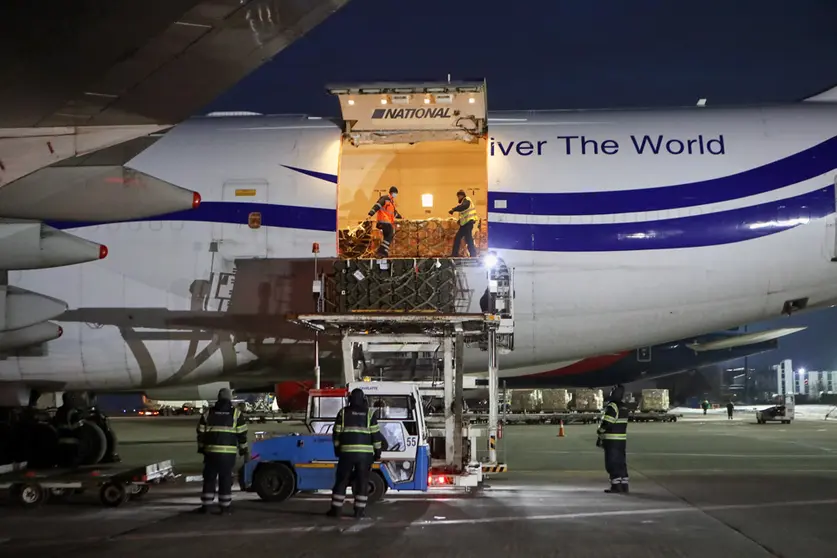The NATO military alliance's 30 members agreed a joint written response to Russia's security proposals that was sent to Moscow on Wednesday.
Moscow also sent a separate proposal to Washington for bilateral security arrangements between the US and Russia.
According to NATO sources, the joint written response to Russia is not to be published for the time being, but diplomats have said the response does not contain any major concessions to Moscow, such as commitments to end NATO's eastward expansion.
In recent weeks, Russia has been amassing tens of thousands of troops on the Ukraine border, something which Western countries have seen as preparation for a possible invasion. Russia denies any such plans.
The joint response to Russia made it clear "that there are core principles that we are committed to uphold and defend," US Secretary of State Antony Blinken said on Wednesday.
These included Ukraine's sovereignty and territorial integrity as well as the right of states to choose their own security arrangements and alliances. Blinken again warned Moscow of "massive consequences" in the event of an invasion of Ukraine.
"The document we've delivered includes concerns of the United States and our allies and partners about Russia's actions that undermine security," Blinken said.
Russia's Foreign Ministry confirmed receipt of the US response.
Ceasefire
Meanwhile, after more than eight hours of talks in Paris, Ukraine and Russia on Wednesday night agreed on their first joint statement since 2019 and a commitment to the ceasefire agreed in 2020.
Representatives of Ukraine and Russia were meeting for the first time since border tensions began to flare late last year.
Kiev and Moscow support unconditional compliance with the ceasefire, according to a statement released by the Elysee palace after the talks under the so-called Normandy format, which brings together political advisors and also includes France and Germany as mediators.
Russia also called on the Ukrainian government to engage in dialogue with separatist militants in the eastern Donbas region.
Moscow's negotiator Dmitry Kozak said Kiev had rejected all attempts at contact from the separatists and now had two weeks to work out a position. There should be a follow-up consultation meeting in Berlin after that, he said.
Kiev has rejected direct talks between its leadership and the Moscow-backed separatist leaders.
Both sides agreed on the importance of the 2014 Minsk peace agreement, and Kozak said its implementation was a prerequisite for the non-violent resolution of the conflict in eastern Ukraine.
Kiev's negotiator Andriy Yermak confirmed there were significant differences of opinion between the two countries but said work would continue on mechanisms to consolidate the ceasefire.
"We see that the ceasefire is working, there are some provocations, but it is working," Yermak said.
More stability
Observers from the Organization for Security and Co-operation in Europe (OSCE) confirmed the ceasefire has been more stable since the beginning of the month, with a 70 per cent decrease in violations.
Amid the diplomatic flurry, NATO countries have been moving more ships and aircraft into the Baltics and Eastern Europe as a show of solidarity against Russian aggression toward Ukraine.
The US and Britain have also been delivering defensive equipment to Kiev. Germany has long been opposed to such arms transfers but said on Wednesday it would send Ukraine 5,000 combat helmets.
The Ukrainian ambassador to Berlin Andriy Melnyk criticized Germany's promise as a "purely symbolic gesture."
Blinken, however, stressed that the US, NATO and their allies "prefer diplomacy and we're prepared to move forward where there is the possibility of communication and cooperation."
Armed conflict between Ukraine and the pro-Russian separatists broke out in 2014, but has since turned into a stalemate with regular eruptions of shelling and skirmishes.
Starting in November, the United States and Europe began sounding the alarm about a large build up of Russian troops on the Ukrainian border, prompting fears that Moscow was planning a military offensive that would dramatically escalate the simmering conflict between the two nations.
According to UN estimates, more than 14,000 people have been killed in fighting between Ukrainian government troops and separatists loyal to the Kremlin in the Donbas.










